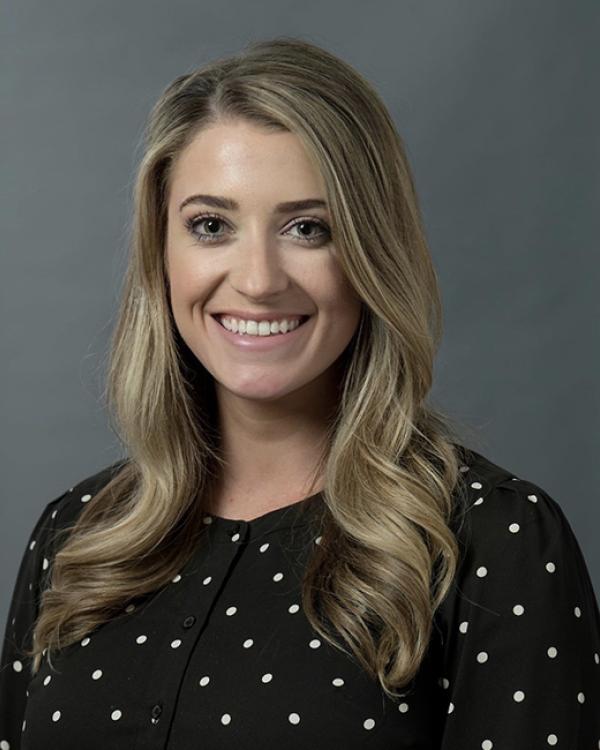
Amy Barrett will be graduating with a Ph.D. from the Department of Counseling, Clinical, and School Psychology. Next year, she will be completing her postdoctoral fellowship at the Yale Child Study Center where she will treat and assess child patients in emergency, inpatient, and outpatient settings.
GGSE: Tell us about your research projects. What are your research interests, and why are they important to you?
Barrett: There is a prominent clinical question, yet relatively little research literature, about the symptom overlap between posttraumatic stress and autism in young children. While treating toddlers with autism in their homes, I quickly observed that this vulnerable population is at increased risk for maltreatment due to a number of child and family risk factors, yet they have significantly reduced verbal and social capacities to self-advocate. Already existing symptoms of autism can lead to diagnostic overshadowing of posttraumatic stress, causing victims of ACEs to go undetected. I hope to contribute to this newly emerging area of research that will identify how posttraumatic stress presents in individuals with autism and will inform the adaptation and development of trauma-informed treatments for individuals with autism and other developmental disabilities.
GGSE: If you could give us one piece of information that you wished every person knew and remembered about your research, what would it be?
Barrett: Individuals with autism experience trauma too, but they may not tell you and they likely won’t show the typical signs and symptoms. Therefore, every practicing clinician should be assessing for ACEs when evaluating or treating individuals with autism and other developmental disabilities.
GGSE: How has your internship been affected by COVID-19?
Barrett: I’m completing my internship at the Yale Child Study Center within Yale Medical School in New Haven, Connecticut. Being close to the epicenter of COVID-19, we have a high number of cases in our community and have been greatly affected. I’m very proud of our team at the Yale Child Study Center for transitioning to telehealth so quickly and giving us the ability to serve our patients in ways that I never thought could be possible. This situation is also forcing us to think critically about diagnostic assessment and how to serve children and families in a safe, socially-distant way that will likely change how assessment is conducted for months or years to come.
GGSE: What’s next? What do you hope to do after earning your Ph.D.?
Barrett: Next year, I’ll be completing my postdoctoral fellowship at the Yale Child Study Center, treating and assessing child patients in emergency, inpatient, and outpatient settings. Afterwards, I hope to find a position at a university medical center where I can specialize in diagnostic assessment and continue my research in the area of autism spectrum disorders and posttraumatic stress response in children.
GGSE: What piece of advice would you pass on to future students in the Gevirtz School?
Barrett: You get out of your training what you put into it. Prioritize what your goals are and pick interesting training opportunities that push you outside of your comfort zone. You’ll never know what experiences you like (or don’t like) unless you try it. You might be surprised!
GGSE: Is there anyone in the Gevirtz School that you would like to thank?
Barrett: My advisor, Dr. Ty Vernon. Members of my dissertation committee, Dr. Erika Felix and Dr. Steve Smith. And some of the amazing CCSP faculty who contributed to my clinical training – Dr. Anna Krasno, Dr. Miya Barnett, Dr. Heidi Zetzer, Dr. Emily Maynard, and Dr. Maryam Kia-Keating.
GGSE: What is one of your favorite memories of your graduate school experience?
Barrett: The people. I have gained some of the most supportive and meaningful friendships as a result of this program that will last a lifetime!
GGSE: In lieu of an in-person ceremony, how will you be celebrating your graduation?
Barrett: I’ll be celebrating at home with my partner, Michael, and our Bernese mountain dog, Ollie. And some cake and champagne!